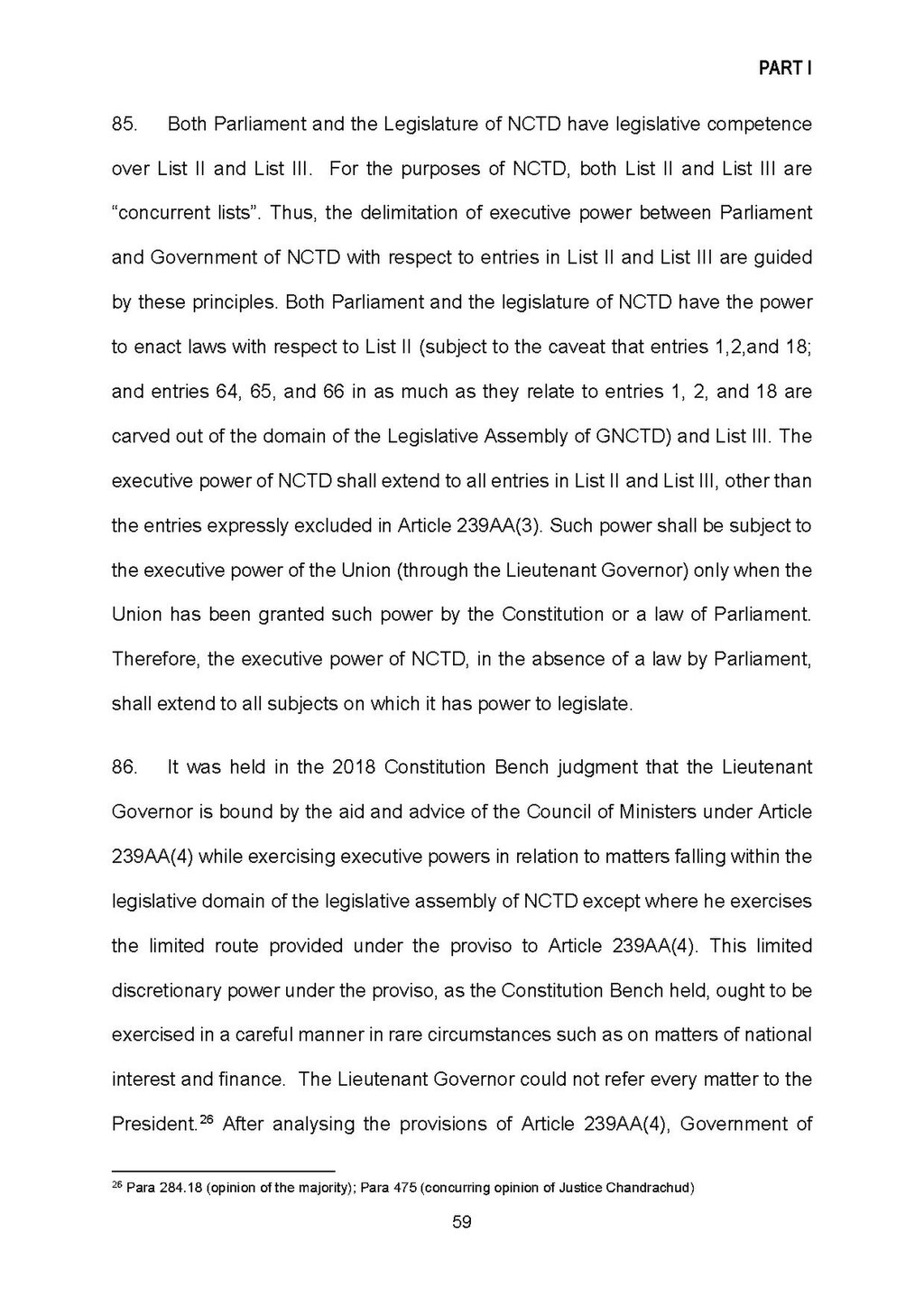85. Both Parliament and the Legislature of NCTD have legislative competence over List II and List III. For the purposes of NCTD, both List II and List III are “concurrent lists”. Thus, the delimitation of executive power between Parliament and Government of NCTD with respect to entries in List II and List III are guided by these principles. Both Parliament and the legislature of NCTD have the power to enact laws with respect to List II (subject to the caveat that entries 1,2,and 18; and entries 64, 65, and 66 in as much as they relate to entries 1, 2, and 18 are carved out of the domain of the Legislative Assembly of GNCTD) and List III. The executive power of NCTD shall extend to all entries in List II and List III, other than the entries expressly excluded in Article 239AA(3). Such power shall be subject to the executive power of the Union (through the Lieutenant Governor) only when the Union has been granted such power by the Constitution or a law of Parliament. Therefore, the executive power of NCTD, in the absence of a law by Parliament, shall extend to all subjects on which it has power to legislate.
86. It was held in the 2018 Constitution Bench judgment that the Lieutenant Governor is bound by the aid and advice of the Council of Ministers under Article 239AA(4) while exercising executive powers in relation to matters falling within the legislative domain of the legislative assembly of NCTD except where he exercises the limited route provided under the proviso to Article 239AA(4). This limited discretionary power under the proviso, as the Constitution Bench held, ought to be exercised in a careful manner in rare circumstances such as on matters of national interest and finance. The Lieutenant Governor could not refer every matter to the President[1]. 26 After analysing the provisions of Article 239AA(4), Government of
59
- ↑ Para 284.18 (opinion of the majority); Para 475 (concurring opinion of Justice Chandrachud)
